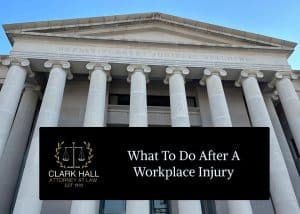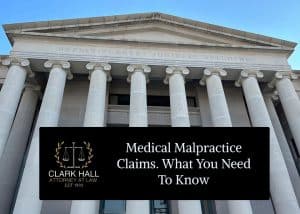## Navigating Auto Accidents in Alabama: A Guide to What Comes Next
Experiencing an auto accident can be an overwhelming and disorienting event, especially when you find yourself amidst the aftermath on Alabama roads. Armed with the right auto accident guidance, you can better understand the immediate and long-term steps required following the incident. Such guidance can illuminate the inherent legal obligations while ensuring protection of rights and interests.
Automobile accidents in Alabama involve unique legal and procedural nuances that differentiate them from those occurring in other states. Consequently, being prepared with specific auto accident guidance tailored to Alabama can make a significant difference in how the situation unfolds. Utilizing key steps can ease the transition from chaos to clarity, assisting individuals in focusing on recovery and reparation rather than confusion and distress.
Whether you face a minor fender-bender or a more serious collision, having a clear, methodical approach can help reduce potential stress and future complications. Crucial steps include seeking medical attention, reporting the accident, and contacting the appropriate legal authorities—all part of the robust system of auto accident guidance available to Alabama residents.
## Defining Auto Accident Guidance in the Legal Context
Auto accident guidance involves an array of strategic steps, legally recommended actions, and essential procedures that individuals are advised to follow immediately after an auto collision. This guidance is not merely a set of instructions but a comprehensive framework designed to protect everyone involved and ensure that appropriate legal procedures are in place.
In the legal realm, auto accident guidance encompasses both the obligatory and the precautionary measures one needs to take to safeguard interests. This includes the collection and documentation of evidence, such as photographs and witness testimonies, which can prove critical during legal proceedings. Moreover, this guidance incorporates notifying law enforcement and insurers, as well as seeking necessary medical evaluations in a timely manner.
Legal professionals recognize the array of complexities that each auto accident case may present. Hence, providing clear, actionable guidance is essential. Such guidance is not one-size-fits-all but is adapted to specific jurisdictions, like Alabama, highlighting the nuances and particular requirements that come into play due to local laws and regulations.
## The Importance of Auto Accident Guidance
Understanding the importance of auto accident guidance is pivotal not only for immediate aftermath management but for the long-term implications of such incidents. Proper guidance serves as a protective mechanism for your legal rights, which can otherwise be jeopardized if key steps are overlooked in the chaotic moments following a collision.
Auto accident guidance helps in safeguarding against potential liabilities and enhances the chances of a favorable outcome, should legal resolutions be required later. More than just a procedural checklist, it serves as a roadmap through the legal intricacies that can arise when dealing with insurance companies, law enforcement, and the judicial system.
Additionally, having insight into what constitutes reliable auto accident guidance can prevent misconceptions and mitigate missteps that may lead to unfavorable scenarios. It empowers individuals to make informed decisions on critical issues like injury claims, financial compensation, and accident reporting, ensuring no legal stones are left unturned.
## Understanding the Legal Framework of Auto Accidents in Alabama
Alabama has specific legal frameworks and statutes that govern automobile accidents, which add an additional layer of complexity for those involved in a collision. It’s crucial to be aware of these legal stipulations to ensure lawful compliance and optimal protection of one’s rights.
Alabama operates under a fault-based system for auto accidents, meaning the responsible party is liable for damages resulting from the crash. As a result, understanding your legal rights and obligations regarding claims is critical. State laws are stringent; for instance, Alabama follows a contributory negligence rule, where any fault on the injured party’s part can bar recovery.
Furthermore, state law requires the immediate reporting of accidents that result in injury, death, or significant property damage, emphasizing the importance of involving law enforcement. Failure to report an accident promptly or comply with legal requirements might incur penalties causing further hassles.
## Illustrative Scenarios of Auto Accident Guidance in Action
Real-world examples of effective auto accident guidance highlight not only the necessity of understanding these principles but also their practical application. These scenarios help show how proper guidance can lead to favorable outcomes or how the lack thereof might result in lasting complications.
Consider a scenario where timely legal intervention and guidance significantly reduced the ordeal for an individual involved in a collision. By adhering to prompt medical assessments, gathering evidence, and contacting their attorney, the individual effectively mitigated possible penalties and received due compensation for damages and medical expenses.
Another illustrative case involves an accident where one party failed to report the incident, leading to prolonged legal battles and unmet insurance claims. The absence of timely accident reporting and lack of critical evidence emphasized the importance of thorough documentation and following legal protocols.
These examples underscore the pivotal role that auto accident guidance plays in determining the trajectory of post-accident scenarios. With the right support and advice, individuals can anticipate hurdles and navigate them efficiently, minimizing long-term impacts.
## Proactive Measures: Steps You Can Take
Knowing what actions to take immediately following an auto accident is vital in reducing stress and ensuring an efficient recovery process. First and foremost, prioritizing safety and health by checking for injuries and calling emergency services if needed is critical. This is the baseline for all subsequent steps in any auto accident guidance strategy.
It is equally important to compile accurate documentation of the accident scene. Using mobile phones or cameras, parties involved should capture the extent of vehicle damages, road conditions, and any visible injuries. Collecting contact details of witnesses, if available, can further substantiate claims and provide an objective account of the accident.
Moreover, notifying the appropriate authorities is a legal obligation, and crucial in laying down an official record of the incident. Contacting your insurance provider promptly kickstarts the claims process and aligns with legal guidelines, maintaining the momentum of seeking reparation for damages.
## Pitfalls to Avoid in Auto Accident Scenarios
During the confusion following a car accident, it can be easy to make mistakes that may adversely impact your legal and financial standing. One of the common mistakes is failing to seek immediate medical attention, even if injuries are not apparent, as untreated injuries can complicate claims later.
Admitting fault or making speculative statements about the accident can also jeopardize your case. Any such declarations made at the scene might be used against you, emphasizing the importance of sharing accident details solely with law enforcement and your attorney.
Another often-overlooked misstep is inadequate documentation. Comprehensive evidence collection is key to substantiating claims; failing to do so can weaken your position. Recognizing and avoiding these pitfalls is where sound auto accident guidance can make a notable impact.
## Optimal Timing: When to Seek Consultations with Legal Professionals
Determining when to consult an attorney following an auto accident is crucial to streamline the legal aspects and optimize outcomes. Legal consultation should not be deemed a last resort; rather, engaging a reputable attorney early can clarify immediate steps and longer-term strategies for recovery and compensation.
Consulting an attorney is especially pressing in complex cases involving severe injury, loss of life, or questions of fault that remain unresolved. An attorney can assist in navigating negotiations with insurance companies, whose primary goal often leans towards minimizing payouts.
Furthermore, legal professionals bring value in structuring fair settlements or, if required, preparing for litigation. Legal guidance ensures compliance with Alabama’s statutory requirements, mitigates risks of non-adherence, and affords peace of mind during tumultuous times.
## The Advantages of Legal Representation
Securing legal representation following an auto accident offers myriad benefits that significantly influence the resolution process. A competent attorney serves as an advocate in negotiating with the insurance companies, compelling them to honor the claims and ensure fair compensation for damages incurred.
Moreover, an attorney’s in-depth understanding of Alabama’s legal framework can help in effectively challenging unfavorable insurance decisions or preparing for court proceedings if settlements are inadequate. Legal representation offers both strategic insight and pragmatic solutions tailored to specific circumstances.
Attorneys also relieve the burden of managing complex legal procedures, enabling victims to focus on recovery and rehabilitation. By facilitating a comprehensive approach that addresses immediate and future needs, legal representation proves invaluable.
## How Clark Hall, Attorney at Law, Can Provide Exceptional Support
Selecting the right legal representation is crucial to steering through the aftermath of an auto accident smoothly. Clark Hall, Attorney at Law, offers precisely the support needed, with a comprehensive grasp of Alabama’s legal intricacies and an unwavering commitment to his clients.
With years of devoted service helping Alabama residents, Clark Hall understands the challenges involved in post-accident scenarios, offering personalized guidance tailored to the unique needs of each client. His approach is characterized by thorough readiness, empathetic client care, and outstanding negotiation skills, ensuring clients are well-equipped to face legal challenges.
Additionally, Clark Hall ensures accessible, open communication, keeping clients informed and empowered throughout the legal process. By choosing Clark Hall, clients in Alabama receive not only professional legal counsel but also a reliable partner dedicated to achieving favorable results.
## Frequently Asked Questions
What steps should I take immediately after an auto accident in Alabama?
After ensuring everyone’s safety and calling emergency services if needed, you should document the accident scene, notify the authorities, and contact your insurance provider promptly to report the incident.
Why is reporting an auto accident necessary in Alabama?
Reporting is essential because it establishes a legal record of the incident, which is crucial for insurance claims and legal proceedings should further action be necessary.
How does Alabama’s fault-based system impact auto accident claims?
In a fault-based system, the party responsible for the accident is liable for the damages. Therefore, proving fault is crucial to recovering costs for injury and damages.
Is immediate medical attention necessary even if I feel fine after an auto accident?
Yes, some injuries, such as whiplash or internal injuries, may not present immediate symptoms. Medical records also serve as important documentation for claims.
Can admitting fault at the scene affect my legal standing?
Yes, statements made at the scene can be used against you in legal proceedings, so it’s advised to only discuss the details with law enforcement and your attorney.
What is contributory negligence in Alabama’s auto accident cases?
Contributory negligence in Alabama implies that if you are found to be partially at fault, you may be barred from receiving any compensation, making it imperative to have strong legal representation.
How does auto accident guidance help in interactions with insurance companies?
By following guidance, individuals ensure they meet necessary procedural steps and maintain proper documentation, which strengthens their case in insurance settlements.
When should I contact an attorney after an auto accident?
It is advisable to contact an attorney as soon as possible to navigate the immediate legal intricacies and ensure optimal protection of your rights and claims.
How can Clark Hall, Attorney at Law, make a difference in my auto accident case?
With extensive legal knowledge, personalized client care, and a dedication to achieving favorable outcomes, Clark Hall provides exceptional legal representation tailored to each case’s nuances.
What constitutes reliable evidence for auto accident claims?
Reliable evidence includes photographs of the accident scene, vehicle damages, witness testimonies, and official accident reports, all of which bolster legal and insurance claims.




